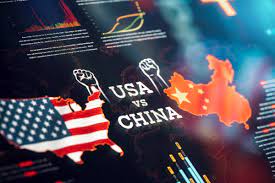
During my tenure as Press Secretary to the President, I met with the newly appointed head of public affairs at the US Embassy who called on me in my office in mid 2022. During the ensuing discussion his primary concern was how to improve US perception which has historically been tainted and uneasy. In reply to one of his queries about improving US perception, I reframed the dialogue. Yes, we were historical allies, bound by pacts like SEATO and CENTO, and US contributions to Pakistan’s military and development are documented. Yet, the common man on the street barely feels their touch. This disconnect is crucial. While grateful for aid, its conditional nature often overshadows its benefits, breeding a sense of strings-attached partnership rather than genuine collaboration. The challenge, I emphasized, lies not in revisiting the past, but in forging a future where the impact of US engagement reverberates directly on the lives of ordinary Pakistanis, transforming their perception from tainted legacy to tangible partnership.
The relationship between Pakistan and the US has been marred by suspensions, distrusts and disappointments. From coercing Pakistan into conflicts during the Cold War era to meddling in its political processes, supporting dictatorial regimes, and then swiftly disengaging once objectives were met, the US left a trail of shattered trust and unhealed wounds. The perception among common Pakistanis, politicians, and the bureaucracy remains that the US is often to blame for the nation’s troubles, whether or not it’s the actual cause. Despite substantial financial aid from the US, which in total might exceed Chinese assistance, the prevalent sentiment in Pakistan portrays the US as manipulative, self-serving, domineering, and unforgiving, perpetuating a negative perception that hasn’t improved over time.
The incident involving the US Navy SEALs violated Pakistan’s airspace to execute the operation that led to the killing of Osama Bin Laden stands as a stark example of deep-rooted distrust. Instead of collaborating with Pakistan’s armed forces, the US, driven by its sheer might, breached the sovereignty of an independent nation. This event, among many others, including the indiscriminate drone strikes causing civilian casualties labeled as “collateral damage,” illustrates the severe humiliation and disregard faced by Pakistan. These actions highlight a pattern of disrespect for international law and human rights, with instances of abductions, extrajudicial detentions, and circumvention of legal processes, such as detaining Pakistani citizens in Guantanamo Bay prisons. Furthermore, the US’s stance during India’s airspace violation lacked condemnation, signaling a bias that overshadowed adherence to international norms, further straining relations and reinforcing a sense of betrayal among Pakistanis.
In stark contrast to the US, China has stood as a steadfast friend to Pakistan since its inception. China’s support has been unwavering, extending aid and assistance during Pakistan’s most challenging economic, financial, and security crises. Unlike the US, China refrained from meddling in Pakistan’s internal affairs or using coercion to achieve its goals. Notably, during critical moments, China didn’t abandon Pakistan and didn’t impose ultimatums, as seen with the US post-9/11, where Pakistan was given a stark choice: “with us or against us.” China’s approach has fostered a sense of reliability and trust, forging a longstanding bond between the two nations based on mutual respect and non-interference.
Unlike the intangible aid from the US and the West, Chinese investment in Pakistan has been palpable and transformative, leaving a visible imprint on the nation’s development. China’s support extended beyond mere assistance, fostering tangible improvements across various sectors without imposing conditions or demanding allegiance. Notably, China aided Pakistan’s defense industry without seeking alliance commitments or dragging the nation into its conflicts. It refrained from interfering in Pakistan’s politics, maintaining a hands-off approach to internal and external affairs, unlike the US or the West. The impact of Chinese investment reverberates in numerous projects, ranging from alleviating power shortages, enhancing transportation networks with roads, highways, and ports, to boosting connectivity, energy alternatives, infrastructure, and even grassroots initiatives like distributing solar systems in Balochistan. These initiatives directly and positively impacted the lives of ordinary Pakistanis, creating a profound sense of appreciation, gratitude, and respect toward China, fostering a deep bond that Pakistanis hold in high regard.
The apprehension and opposition from the US and Europe toward the China-Pakistan fraternal and all weather friendship is a sentiment of reluctance and apprehensions. They don’t have the appetite to assist Pakistan towards development and progress nor want others to do so. As Director Media to the former President Zardari and deeply attached with the PML(N) leadership during Nawaz’s period, I first hand witnessed Mr. Asif Ali Zardari and Nawaz Sharif made frantic outreach to the US and the West to help Pakistan out of its financial and economic woes but both declined involvement. Their refusal prompted Pakistan to turn to Chinese investment, a move born out of necessity to expedite progress and uplift millions out of poverty. The CPEC emerged as a crucial pathway for Pakistan’s advancement when other avenues for support were unavailing.
The criticism aimed at Chinese investment often includes allegations of creating a debt trap for Pakistan, yet Pakistan’s experience tells a different story. Contrary to the accusations, Pakistan finds comfort in its debt owed to China, which stands out among its various creditors. According to Dr. Shamshad, Pakistan’s Caretaker Finance Minister, the Chinese debt is the most forgiving and accommodating. Chinese creditors demonstrate a remarkable flexibility by extending payment deadlines upon Pakistan’s request, showing understanding and support. Notably, Chinese debt boasts the lowest interest rates, further distinguishing it from other financial obligations. Additionally, China remains willing to bolster Pakistan’s foreign reserves whenever the need arises, showcasing a level of generosity and support that Pakistan values. This stands in stark contrast to the portrayal of a debt trap and exemplifies the favorable terms and understanding within the Pakistan-China financial relationship.
The criticism from the US and the West towards CPEC is though baseless, reflects their frustration and appears driven by concerns over being sidelined from Pakistan’s strides in progress and prosperity. They knew very well that the success of the CPEC could potentially set a precedent for similar initiatives in the region and globally, making the US and the West uneasy. Critiques against the CPEC seem largely unfounded, with concerns raised about Beijing’s influence, debt accumulation, altered trade dynamics, environmental sustainability, and social repercussions lacking substantial basis. These criticisms, seemingly founded on fears of geopolitical shifts and China’s enhanced presence, underline the multi-dimensional impact of the CPEC on the region.
The accusation of altering trade routes or imposing dominance by China in the context of the China-Pakistan Economic Corridor (CPEC) is baseless and lacks merit. Both China and Pakistan have extended invitations to countries across regions, including the Middle East and Europe, to actively participate as equal partners in the expansive Belt and Road Initiative (BRI). Notably, this inclusive approach extends even to India and Afghanistan, offering them opportunities to join this transformative program. Such outreach negates the notion of China’s intention to monopolize or manipulate trade routes. Instead, the BRI serves as a unifying platform that, when fully operational, connects the global community, minimizes distances, stimulates trade and investment, reduces transportation costs, and ensures year-round availability of essential commodities worldwide. By stabilizing prices and enhancing accessibility, this initiative fosters equal opportunities for all participating nations to progress and thrive, presenting a vision of shared development and prosperity on a global scale.
The perception of the US in Pakistan is tainted by a complex history of fluctuating alliances, military interventions, controversial drone strikes, and a sense of conditional aid driven by perceived self-interest. These experiences have bred skepticism, undermining trust and sovereignty. In contrast, China’s resonance in Pakistan is rooted in an enduring friendship characterized by non-interference, respectful bilateral relations, and unwavering support sans conditions. Tangible investments, notably through transformative projects like the China-Pakistan Economic Corridor (CPEC), have bolstered economic development and infrastructure visibly, fostering genuine goodwill. China’s consistent collaboration during Pakistan’s challenges without ulterior motives has solidified the perception of a true partnership, painting a sharp contrast to the perceived interests and interventions associated with the US-Pakistan relationship.
My advice to him in reply to his question; how to improve the deeply entrenched negative perception of the US in Pakistan was straightforward: Emulate the Chinese model. Reflect on why China is embraced and cherished by the people of Pakistan. Consider why the Pakistani leadership, both civilian and military, find comfort in dealings with China, and why there’s inherent trust in this relationship. Evaluate why the bond between China and Pakistan remains resilient despite changes in government or shifts in bureaucratic structures.
Furthermore, the key lies in initiating projects in Pakistan that are tangible, visible, and directly improve the lives of ordinary citizens. Importantly, refrain from meddling in Pakistan’s domestic politics and internal affairs. To recalibrate the bilateral relationship, it’s essential to approach it as equals rather than fostering a dynamic of servant and master. This shift toward mutual respect and visible, impactful projects can pave the way for a more positive perception and a stronger bond between the US and Pakistan like it did between China and Pakistan.
M.Qamar Bashir is Former Press Secretary to the President ,Former Press Minister to the Embassy of Pakistan to France ,Former MD, SRBC


